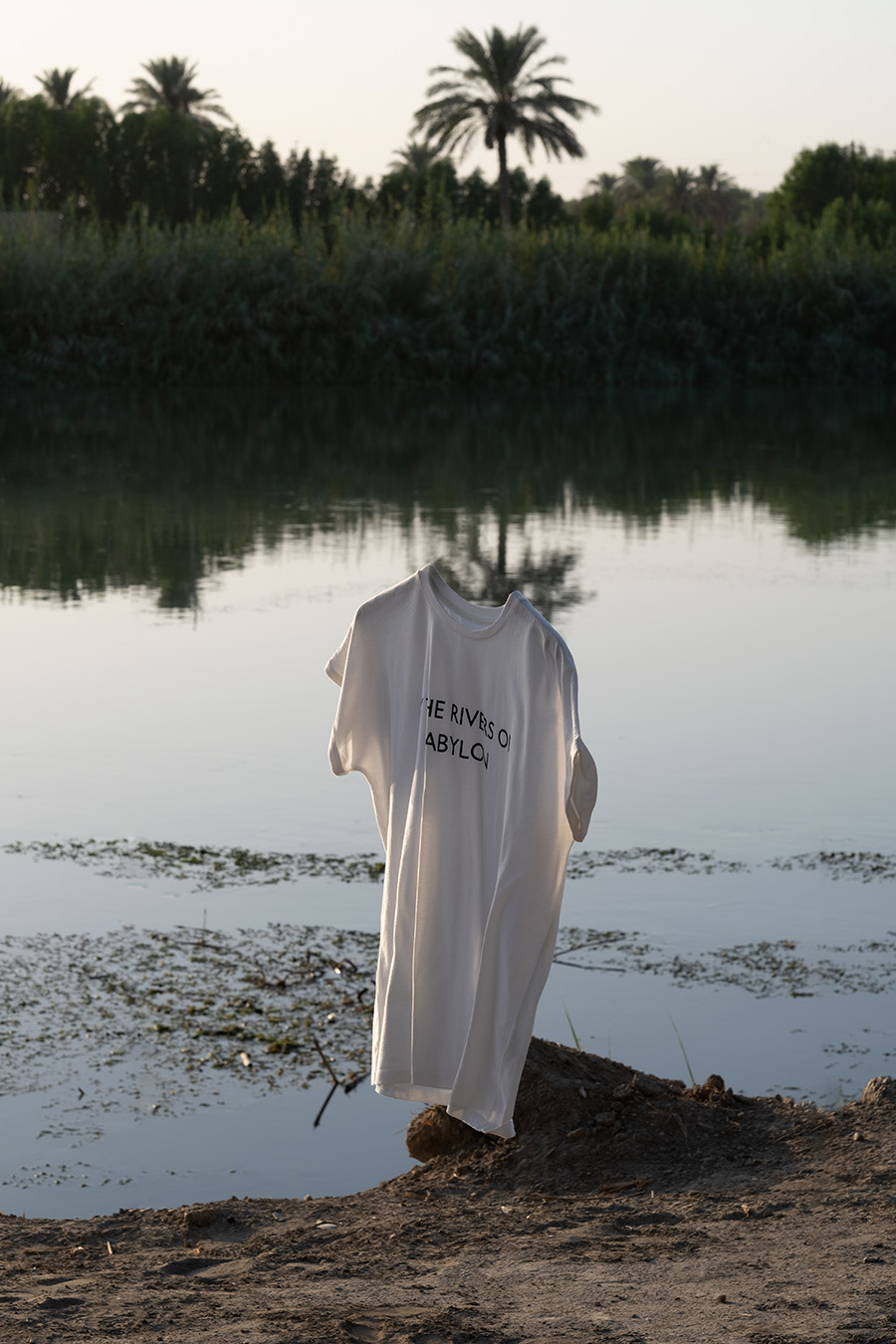Contemporary artist Defaf Alamri recently launched a media-driven brand – Namaqua. Meeting at the intersection of art and politics, fashion and activism, they call it “Artivism”.
The studio’s first release is a collection of slogan t-shirts, encapsulating the artist’s firm belief that words have the power to change the world.
The NAMA t-shirt is refined and contemporary, crafted from organic Pima cotton, finished with no chemicals or silicones. The words, screen printed by hand using water-based inks, become as one with the fabric. The brand is reimagining the craft of printing words on fabric to create shifts in movement and change.
Namaqua’s mission is to make a change through words – this is the ‘product’ – it’s the intangible that is the ‘product’ – the material manifesto that results from this – in this case is the Nama T-shirt. Through this philosophy they hope that this enables the owner of the Nama T-shirt to form a much stronger emotional connection with their purchase – to propel longevity of use and love for the item, increasing its measure of sustainability.
Namaqua t-shirts



About Defaf Alamri
Born in Iraq in 1982, moving to the UK when she was 4 years old, she has experienced first-hand some of the concepts explored. The culmination of ideas, thoughts, ideologies, wants or what ifs and wishes – resulted in the imagining of Namaqua.
Sustainability
Namaqua was founded with a focus on crafting refined t-shirts, both in their material and technical cut, fit and drape. The studio constantly reassesses the relationship between sustainable practices and materials, choosing to weave an in-house cotton fabric with a DNA specifically for the Nama T-shirt. The yarn used for weaving is a GOTS-certified organic Pima cotton.
Whilst there are ongoing debates about the use of organic cotton vs cotton, in the overall pledge to sustainability, the studio firmly believes in the growing systems used for organic cotton – systems that replenish and maintain soil fertility, helping build biologically diverse agriculture. Organic crops are also not treated with pesticides, insecticides or herbicides. Not only toxic to the farmer, they are washed into surrounding rivers and regional groundwater, entering every aspect of the ecosystem.
The brand ensured the cotton used is GOTS-certified. The Global Organic Textile Standard is a worldwide leading textile processing standard for organic fibres which includes ecological and social goals and is backed by an independent certification of the entire supply chain.
Namaqua opted to use organic Pima cotton rather than conventional cotton. It has been cultivated since antiquity, but has been especially prized since a form with particularly long fibres was developed in the 1800s. Also known as extra-long-staple cotton, longer fibres result in a finished woven fabric that is naturally softer, stronger, and longer-lasting than one made of short-staple cotton fibres. A longer fibre length also means that fewer shorter ends are exposed on the surface resulting in a smoother material that resists pilling and holds its shape.
For this reason, the studio was able to refrain from finishing its bespoke yarn with any chemical or silicones, normally used to add softness. For a full-circle approach to sustainability, creating The Nama T-shirt from the studio’s bespoke yarn, and with proper care, means creating pieces that will endure, a t-shirt that can be passed on.
A special attention was also paid to packaging – the paper they use for the shopping bags and shipping envelopes comes from Forest Stewardship Council (FSC) certified forests, considered to be the gold standard in responsibly managed wood harvesting.
They use recycled paper for their slogan stickers and opt for minimal aesthetic packaging that still optimises the user experience. The bio-PP Fastener used to attached the hang tags, is made from a proprietary blend of polypropylene material specifically designed to biodegrade in less than a year when it is on soil, without leaving behind any harmful substances. The technology used results in no micro plastics, means that when a fastener degrades all that is left is carbon dioxide, water, and microbes (biomass).
MEET OTHER BRANDS YOU HAVEN’T DISCOVERED YET HERE.





